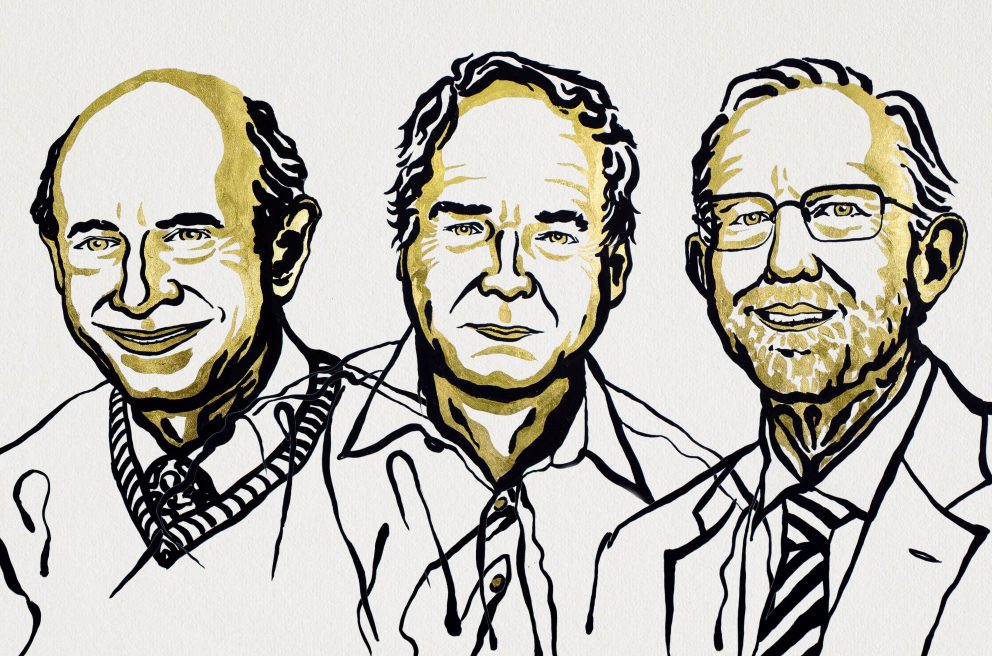06/10/2020 Opinion

Joan Carles Quer, professor at the Department of Medicine and Surgery of the Universitat Rovira i Virgili and head of the Digestive Apparatus Service at the Joan XXIII University Hospital in Tarragona
The discoverers of the hepatitis C virus
The Nobel Prize has been awarded to Harvey J. Alter, Michael Houghton and Charles M. Rice, who have had a significant impact on improving global health. Thanks to their discovery, there are now highly sensitive blood tests that enable hepatitis C to be eliminated after a blood transfusion

The Nobel Prize has been awarded to Harvey J. Alter, Michael Houghton and Charles M. Rice, who have had a significant impact on improving global health. Thanks to their discovery, there are now highly sensitive blood tests that enable hepatitis C to be eliminated after a blood transfusion
It was recently announced that the 2020 Nobel Prize for Medicine was being awarded to the researchers Harvey J Alter, Michael Houghton and Charles M Rice, who were all involved in identifying the hepatitis C virus (HCV) at the end of the 1970s. The discovery resulted from their efforts to solve the mystery of why some people developed hepatitis after receiving a blood transfusion, despite the presence of the two then known variants of the virus, hepatitis A and B, having been ruled out. The studies carried out by these researchers, two American and one British, identified a new hepatic infectious disease which they called “hepatitis no A-no B” and which caused chronic inflammation in the liver of people who had received blood transfusions. They subsequently isolated the genetic sequence of the virus which caused the disease and which they called hepatitis C.
The reason given by the Swedish Academy to award the Nobel Prize 30 years later is indicative of the significance of their research: “The discovery of the hepatitis C virus has saved millions of lives and their contribution has been decisive in combating this disease which is an enormous threat to global health by causing cirrhosis of the liver and liver cancer.” Chronic hepatitis caused by HCV is a health problem that has global repercussions because it affects 3% of the world’s population or more than 170 million people. The main problem lies in the fact that in 75-80% of infections, the disease remains in the liver and causes chronic liver disease. Although in most cases chronic hepatitis caused by HCV has negligible effects, in 20% of cases the lesion can progress and lead to hepatic cirrhosis and liver cancer.
Since the discovery of HCV by these researchers, both the methods of diagnosis and the medicines used to cure it have evolved significantly. Today, we are able to say that treatments for hepatitis C cure more than 98% of cases, with drugs that are easily administered orally over very short periods of 8-12 weeks and which cause no side effects.
Current efforts focus on detecting the maximum number of cases so that they can be treated and, an endeavour that reflects the classification of hepatitis C as a global health problem. At the Digestive Apparatus Service of the Joan XXIII University Hospital we have been working for several years in this area, employing different strategies for detecting hidden cases of HCV in our reference population. Most of these projects are interdisciplinary and are carried out in collaboration with the Primary Healthcare Service of the Catalan Institute of Health. We have also implemented “HCV elimination strategies” among vulnerable groups, for whom access to the health service is more difficult, for example in centres that offer help to people with drug dependencies.
More news about: Nobel prizes, Opinion
